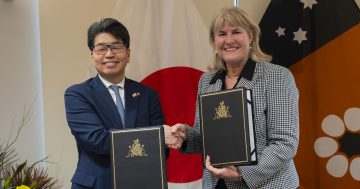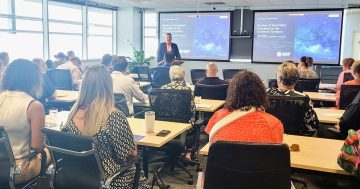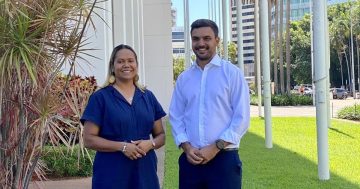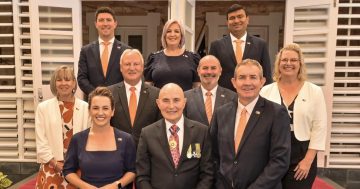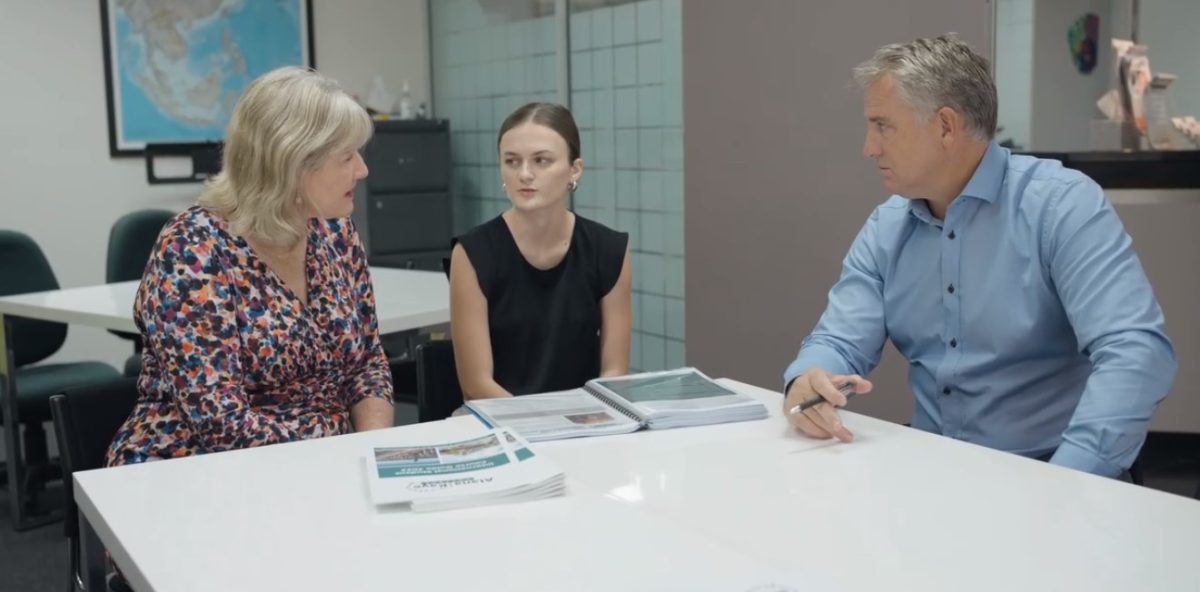
Chief Minister Eva Lawler, along with Joel Bowden, the Member for Johnston (right), announced the NT Government’s ongoing commitment to growing service exports. Photo: Facebook/Eva Lawler MLA.
As part of the effort to reach their $800 million goal for Northern Territory service exports by 2026, Chief Minister Eva Lawler will travel to Japan next week and hold further trade talks.
Services trade constitutes 3.6 per cent of the Territory’s total exports, and last year grew by 23.3 per cent to $455 million – over halfway towards its target.
The Chief Minister said her government will work alongside business and industry to support the effort towards a $40 billion economy for the Territory by 2030.
“International two-way trade is an important driver of the Territory’s economy because it catalyses growth in investment, generates new business opportunities and creates local jobs,” Ms Lawler said.
“This is why next week I am travelling to Japan – to progress important conversations with INPEX and other Japanese-based companies to further projects in the Territory.”
Japan represents 47 per cent of the Territory’s exports, which includes supplying 10 per cent of Japan’s annual LNG needs.
Next week’s meetings are expected to be on the progress behind major initiatives with the land of the rising sun, thereby maintaining a relationship the NT Government believed to be crucial in growing its economy.
One success story from the service effort is 2022’s NT Exporter of the Year, international education and training provider Alana Kaye College.
As of May last year, the College’s 1065-strong cohort had 230 international students from over 30 countries.
But since it started exporting to the international market in 2018, it has brought over 600 students to Australia, most of whom now reside and study in the Northern Territory.
In the last 12 months, these students have come from Japan, South Korea, the Philippines, India, Argentina, Germany, Brazil, Fiji, China and the Netherlands.
Territory Minister for International Education Joel Bowden said the international education sector will contribute $165 million to the economy and support nearly 600 jobs, thanks to the over 5000 students enrolled in 25 of the Territory’s providers.
“International students strengthen cultural, social and economic ties and bring diversity to our community and valuable skills to the Territory’s workforce,” said Mr Bowden.
“We want to continue to attract international students to choose the Territory, and with the new Charles Darwin University city campus in Darwin set to open this year, we want to double the number of students to 10,000 in the coming years.”


